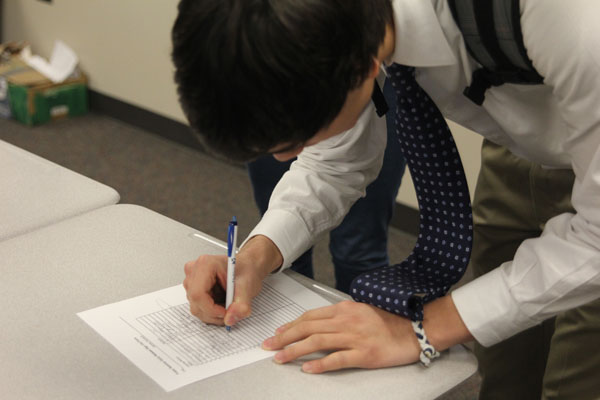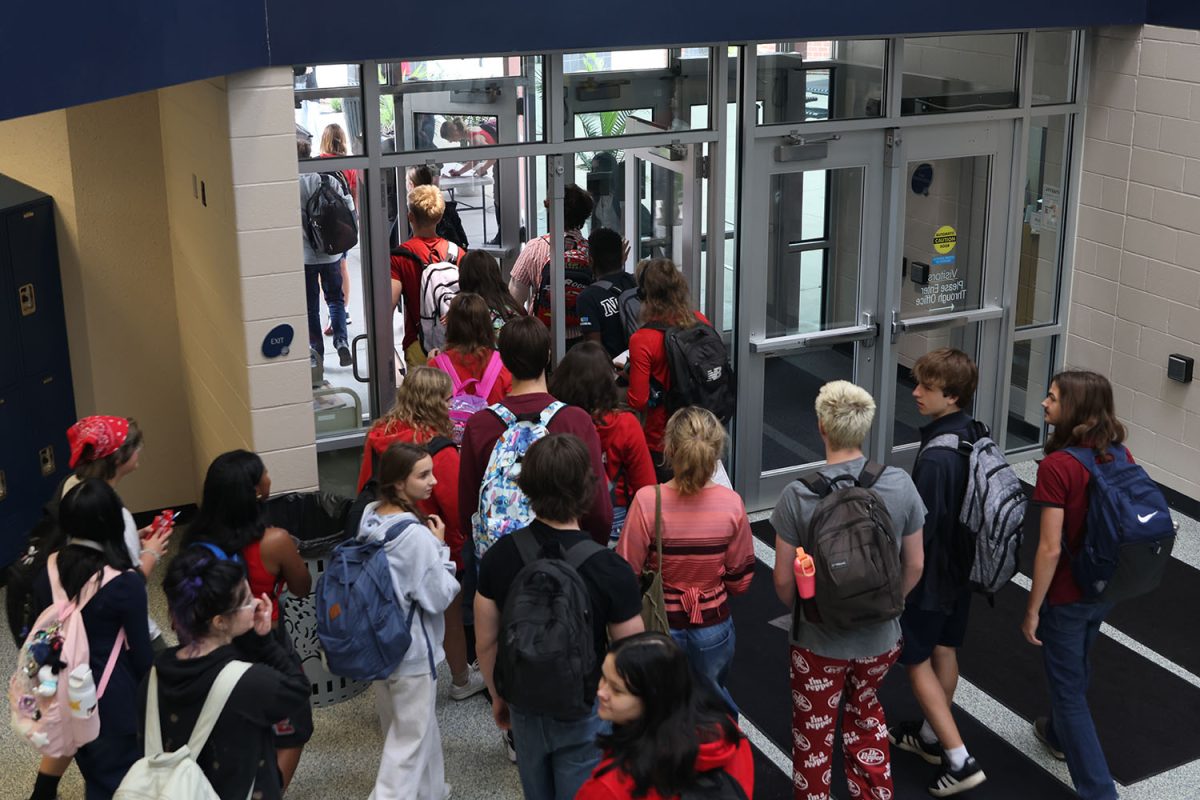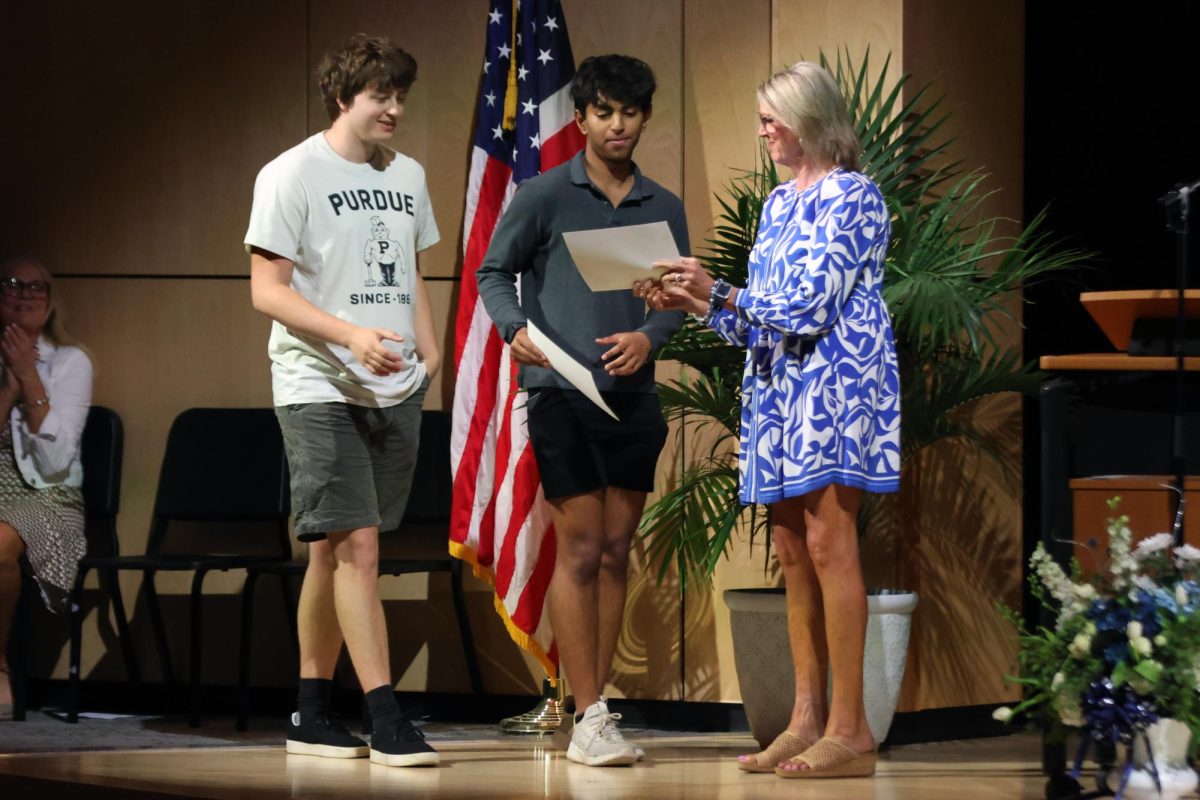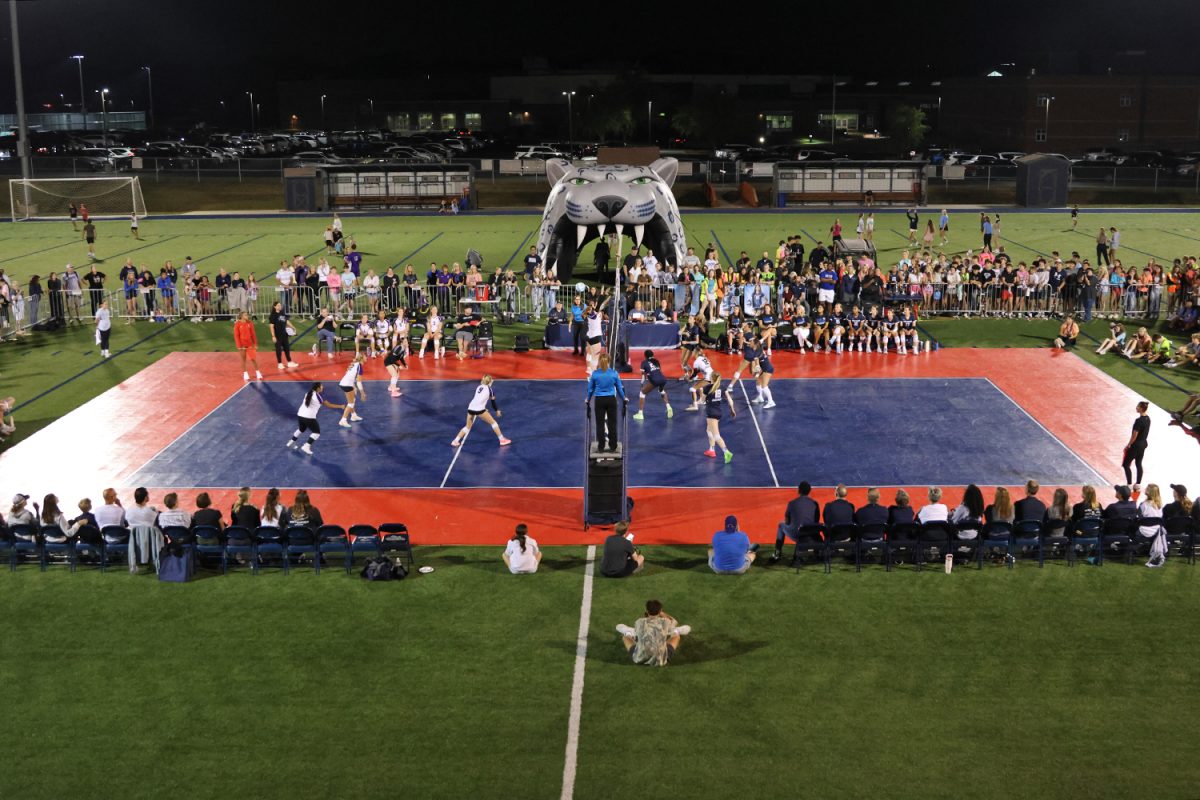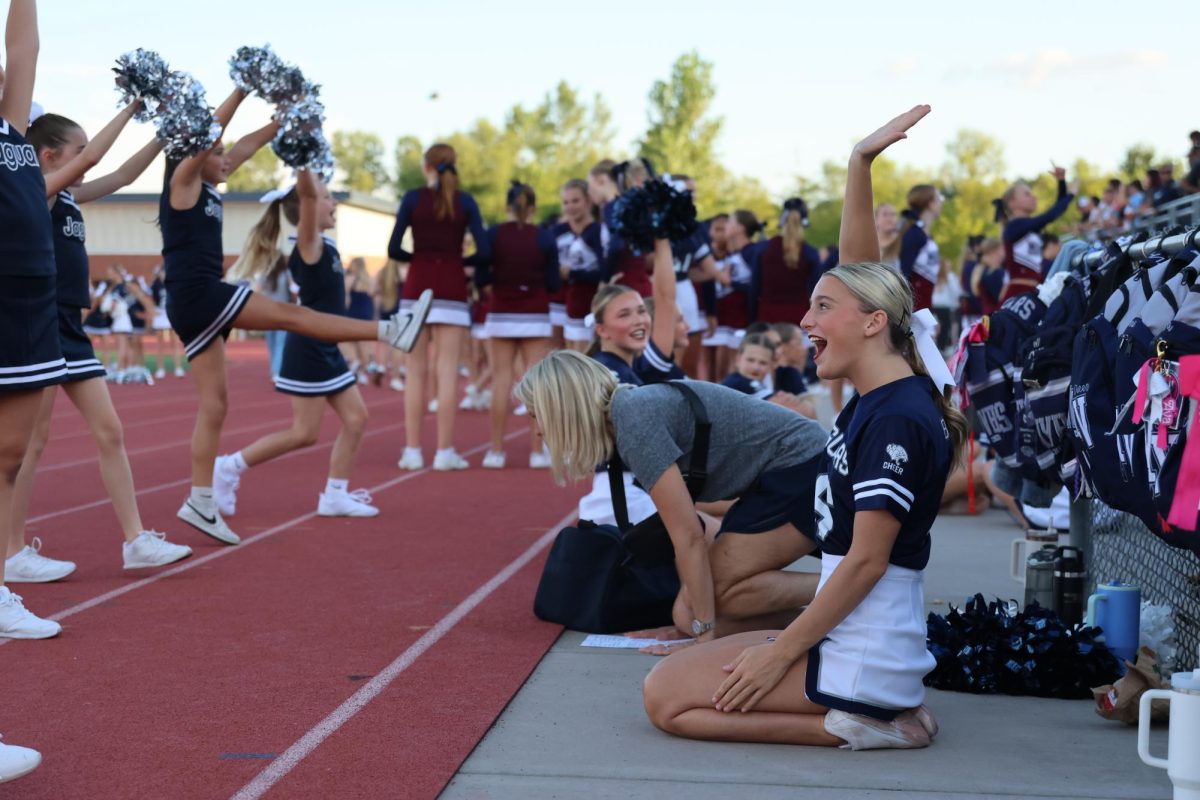Early release on Fridays, a policy put in place as part of the district-wide initiative Positive Behavior Intervention Supports, or PBIS, succeeded in improving attendance last semester according to associate principal Jennifer Smith.
Smith calculated that excused absences have decreased by 33 percent, excused tardies by 83 percent and unexcused tardies by 41 percent.
“I’ve heard a lot of feedback, both positive and some things that people would recommend to make it better,” Smith said. “…one of the main reasons why we put it in place was to increase attendance and it has had a significant impact on that.”
Sophomore Drew Boatwright enjoys the incentive.
“I like getting out early,” Boatwright said. “I like how they reward us for getting good grades and trying hard in school.”
According to Smith, staff also benefits from the policy.
“I think a lot of teachers enjoy having their students in class so they can actually learn what’s being taught,” Smith said.
Social studies teacher Chris Dunback agrees with Smith that early release is a positive change.
“I thought it was very successful,” Dunback said. “I think we found something that the kids are willing to work for a little bit so I think it was a good change.”
During the second week of third quarter, between Monday, Jan. 9-Friday, Jan. 13, 702 students qualified for early release, the highest yet. Smith hopes students who qualified for the first time will be motivated to keep their grades up and not miss school in order to qualify again.
“I’m hoping that…more people have that opportunity to take advantage of the early release,” Smith said. “I really am excited every week when I see the list come through of how many students are actually qualified because that means students are getting more out of their education.”
Smith recognizes the frustration felt by students who do not qualify for reasons such as doctors’ appointments that cause them to miss school. Recommendations from teachers for future changes include adjusting the policy to account for absences such as appointments during seminar or using emergency tardies.
Some students, however, are unable to leave early even if they do qualify, such as junior Stephanie Ciston.
“I just don’t have a ride and it’s easier to stay here,” Ciston said.
She also said she would rather be able to add up her early release time and get a whole day off of school at the end of the year, rather than only getting to miss 40 minutes a week.
The administration plans to continue working with the student leadership teams put together first semester to assist with the implementation of PBIS to consider policy changes and future incentives, such as playing music in the cafeteria. Smith hopes future incentives will improve the school culture as a whole.
“We talked about things we could do to get people excited about activities and games and things going on in our school to build that community feel,” Smith said. “You have to all work together to develop that climate and to make it a place people want to be.”


